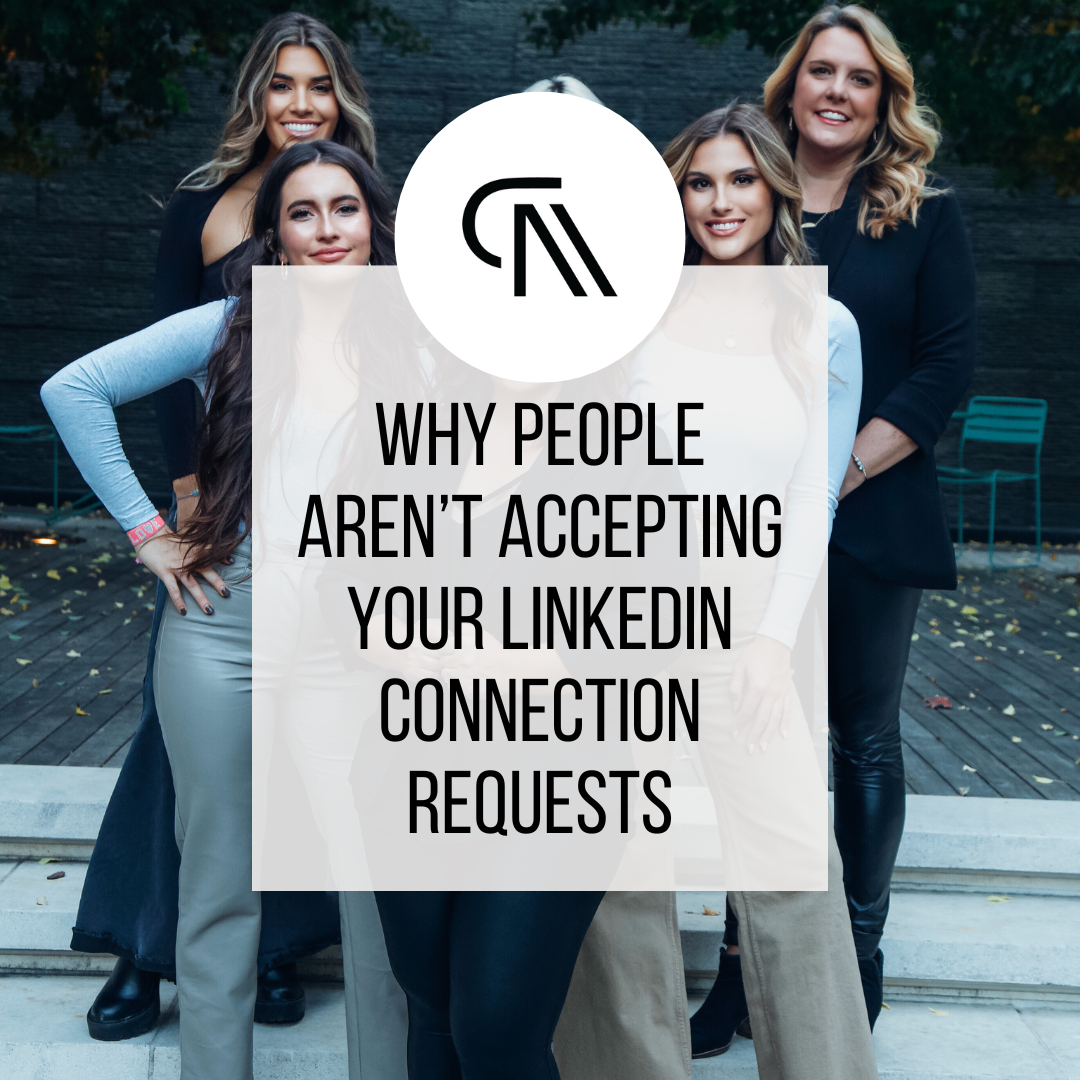So, you are building your executive brand on LinkedIn.
If you’re sending out LinkedIn connection requests and not getting much traction, you’re not alone. But here’s the thing: the issue may not be with the people you’re trying to connect with—it’s likely in the way you’re approaching them.
In this post, we’ll dive into why people might be ignoring your LinkedIn requests and how to boost your acceptance rate without needing to send follow-up messages or rely on gimmicks.
Mistake #1: Sending Connection Requests Without Any Prior Interaction
Think about it: would you accept a friend request from someone you don’t know and have never heard of? Probably not. The same rule applies to LinkedIn, especially for executives and professionals who receive countless requests from strangers every day. Without a point of reference, your request can feel random—and most people won’t think twice about ignoring it.
Solution: Warm Up the Connection First
Before sending a connection request, spend some time engaging with their content. Start by liking and commenting on a few of their posts over the course of a week. It’s an easy way to make your name familiar to them. Then, when you send the connection request, they’re more likely to recognize you and accept it.
Mistake #2: Your LinkedIn Profile Isn’t Optimized
If someone gets a request from you, their first instinct is to check out your profile. If your profile lacks clarity about who you are and what you do, or if it feels incomplete, it’s not going to inspire confidence. Your profile should give a strong, immediate sense of your expertise and personality.
Solution: Polish Your Profile
Take a few minutes to optimize your LinkedIn profile:
- Headline: Make it clear what you do and who you help.
- About Section: Briefly highlight your experience, focus, and the value you bring.
- Professional Photo: Use a recent, high-quality headshot that represents you well.
By making sure your profile is clean, professional, and specific, you’ll show potential connections that you’re worth connecting with.
Mistake #3: You’re Not Offering Any Value
People want to connect with those who bring something interesting or relevant to the table. If your LinkedIn activity is minimal, with little to no content or engagement, you may come across as someone who isn’t active or invested in the platform.
Solution: Become an Active Contributor
Start posting and engaging on LinkedIn consistently. Share insights, comment thoughtfully on other posts, and show up regularly. When you’re active and provide value to your network, people will want to connect with you.
Mistake #4: Relying on Mass Connections Instead of Quality Ones
LinkedIn isn’t just a numbers game. Sending out tons of requests without thought is a quick way to end up with an unengaged network—and it won’t help you build meaningful connections or your personal brand.
Solution: Be Selective with Your Connection Requests
Instead of sending out mass requests, be intentional about who you’re connecting with. Look for people whose content you find engaging, who are in your industry, or who could benefit from your insights. A targeted network of people who are genuinely interested in your expertise will provide more opportunities and value than a broad but random one.
Mistake #5: Ignoring the Power of Content in Connection Building
The simplest way to attract connections on LinkedIn? Create content that people want to engage with. If you’re only logging on to send requests but never contributing, you’re missing out on the opportunity to connect with people who are naturally drawn to your ideas.
Solution: Use Content to Drive Connections
Start posting regularly to build a visible presence. Share your insights, engage with others in the comments, and join in conversations on LinkedIn. When people see your posts and find them valuable, they’re more likely to send connection requests to you, too.
By focusing on these strategies, you’ll see a noticeable difference in your connection acceptance rate. Building a solid LinkedIn network takes more than just sending requests—it’s about showing up, adding value, and making authentic connections.

